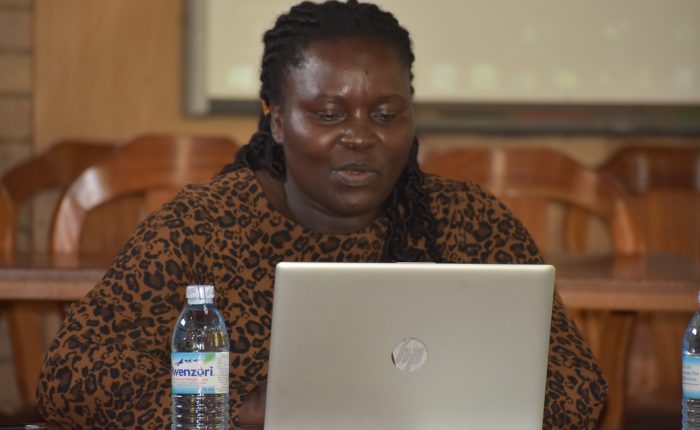By Jimmy SiyasaClick to download Research Report
The Uganda Christian University (UCU), David Mugawe has launched a health research report by Dr. Emilly Maractho, the Director of Africa Policy Centre. The report, which was launched on February 23, 2022, is the result of a collaborative health research between UCU and US-based Lehigh University. Dr. Maractho is one of five scholars, four from Lehigh, who prepared the report. They include: Judith Lasker, Sirry Alang and Kelly Austin.
At the launch, Mugawe, noted that the study, entitled “Enhancing the value of Short term volunteer missions in health from host country perspectives: The Case of Uganda,” is timely and brings relevant empirical data that is of utility to national stakeholders in the health sector. “This report, as a case study of Uganda, is going to be a point of reference and source of empirical data that will inform and influence policymakers and other relevant stakeholders that are looking for such data to advocate for change, investment, etc.”

Mugawe also welcomed more like research partnerships with other universities, acclaiming Lehigh’s collaboration with UCU. He further emphasized UCU’s robust commitment to the research agenda, encouraging other UCU scholars to publish their works, while counting on full university support. “This is exciting, for us to see products that are homegrown, and we are glad for the partnership [with Lehigh university],” Mugawe said.
“Within top management, we do have research as a key agenda and this has been seen in our [significant] budgeting for 2022. As a University, we’ve supported research initiatives by some of our professors, who [early this year] formed teams and competed for a grant that the University did award.”
During her presentation to both an online and physical audience that had gathered at the UCU Principals’ Hall, Dr. Maractho noted that her research study, which kicked off in 2018, was inspired by the overall health needs of Uganda, which relate to Short Term Medical Missions (STMMs).
Within the context of the research study, STMMs refer to the various medical teams that come to an area to offer medical assistance within the host communities for a given period of time, then later return to their countries of origin.
According to the study, by 2018, Uganda was having a rapid population growth, especially within the rural areas, a trend which made them more susceptible to STMMs, and therefore, there was an overwhelming need to assess, “ the perspectives of host communities on STMMs, their practice from host country perspectives, the extent to which sending organization aligns with host communities in order to understand their need and, final, the regulatory and policy environment within which they operate in host communities,” Dr. Maractho said.
She also noted that by 2018, STMMs involved about 1.6 million volunteers and were estimated at US$ 2-3 billion annually. The majority of the STMMs came from the USA (46%), followed by Europe (36%), then Asia (13%), among other origins.
Data for the study was collected from 10 districts which included: Gulu, Nebbi, Arua, Lira, Mbale, Kasese, Mbarara, Bududa, Kampala and Mukono



